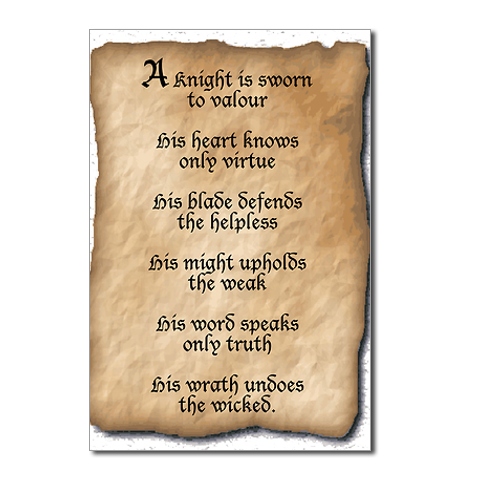I sometimes forget I’m in jail.
In the free world, we naturally and necessarily place trust in the people we work with. We study the character of each, and we trust one more over the other, as Time and discernment help to reveal the true selves of these relative strangers.
Corrections tells you to be wary of inmates. You sometimes hear that you can’t trust any of them. You sometimes hear that you can’t let your guard down. You sometimes hear that inmates are like children, and will get away with anything they can get away with.
And then corrections tells you: “Here’re the prison’s libraries, here’re the services we want you to provide, and here’re the inmates who are going to help you.”
“But you just told me I can’t trust them….”
“Well — let’s say that you shouldn’t. This is jail, not Yale.”
“But I’m the only professional you have supervising them — I can’t be everywhere at once. i HAVE to trust them.”
“Just do the best you can.”
What follows is an account of what can happen while you’re busy doing the best you can.
I rely on 19 paid library clerks to help run library services in a population law library, a population lending library, a segregation unit law library, and services to the Hospital Services Unit as well. I also have classroom assistants for a law clerk training program, a book discussion group, and a literature-based consequential thinking seminar. That’s a lot of responsibility, and a lot of clerks to supervise. As you can imagine, I can’t be everywhere at once. Because of that, I have to place an extraordinary level of trust in the library clerks who work for me. At times, that extraordinary level of trust is betrayed. That happened recently, when I had to fire a clerk for using his clerk computer to write his legal work.
Well, he shouldn’t do that, you see. This is because the computer he’s been entrusted with is for library work only. Well, you gotta have SOME limits, and that statement certainly rings true in a prison. The morality of some men become warped and perverted to the point where they actually believe that if there is no written rule prohibiting a specific act, then they are free to do it! Strange and dangerous thinking for an adult to travel through life with. Why, that kind of thinking could land you in prison!
So one recent afternoon, I entered one of the offices just off the lending library floor and caught site of my computer programmer (he builds databases in Access) with paperwork spread out over his desk, and he’s typing on his computer. I say: “What are you doing, George?”
George looks up from the screen and says, “My legal work?”
Now understand — this is happening in the same month precisely one calendar year ago when all 19 of my clerks were fired after it was discovered that some of them were — among other things — using their clerk computers to make greeting cards and writing college papers. This fellow George here was in that number. He didn’t have his job returned to him until four months later. But now, one year later, he’s at it again.
I said to George, “For God’s sake, George, been there, done that, remember? You’re not allowed to do personal work on these machines. Stop what you’re doing.” Then I walked back to my law library office.
Notice I didn’t stand there until I made sure that he made a move. That’s because, even given the circumstances, I put trust in him that he’d do what I directed him to do. This is because of the character I know him to have. Yes, he’s just been pinched for breaking the rules. But he’s worked in the library for seven years, and in that time he’s succeeded in heeding the rules. That’s the character I’m drawing from.
I have a friend who is a recreation officer assigned to provide security in the library of the Walpole State Prison. He once admonished me thus: “Billy, you and a con can be golden for five years. But the first time you have to tell him ‘No,’ he’s a different person.”
Well, that wasn’t exactly the situation here, but it bears repeating. The situation here was born of selfishness. This clerk decided that his desire to use a word processor on his work computer to complete his legal writing outweighed his chances of getting caught, losing his job, and damaging his credibility with me. All this I found out only because I brought him into my office later that evening and asked him just what the hell he meant by throwing a good job away?
When this kind of thing happens, it’s hard not to take it as a personal betrayal. In his case, I had him working for me for seven (7) years. Seven years is a long time to hold a job in jail. What it tells the Administration is that you’re very well satisfied with the job performance of this individual. And this certainly was true. The man did much good for his library in that time, so much that, hours after this first happened, I had to sit still and imagine library services without him. I actually considered turning a blind eye so I could keep him. Because of his past work, peaceful demeanor, good sense of humor, and ability to forgive my many faults, this was one of the toughest decisions I’ve made in recent years.
But good sense outweighed sentimentality. If last year hadn’t happened, MAYBE the blind eye could’ve been justified. But not this time. He was suspended. I wrote an Incident report. The Administration read it & asked me to write a Disciplinary report, which I did. The man had his hearing, during which he pled guilty. And one of his sanctions is that he lost his library clerk job.
Trust had been betrayed. I made that clear to him in our talk. He actually felt shamed by what he’d done. But his earlier choice was to take the chance that I wouldn’t catch him, and would never know that trust had been betrayed.
They say, “What you don’t know can’t hurt you.”
When it comes to trust — do those words ring true?



